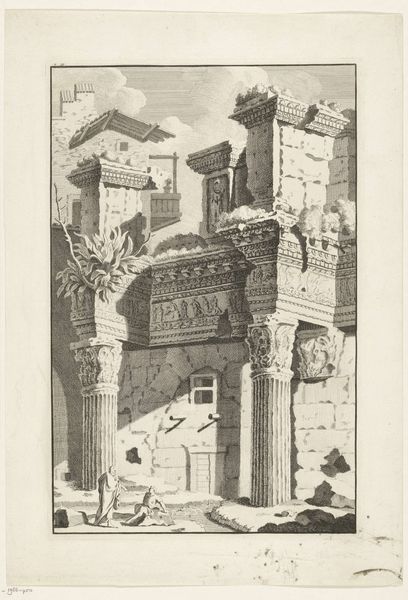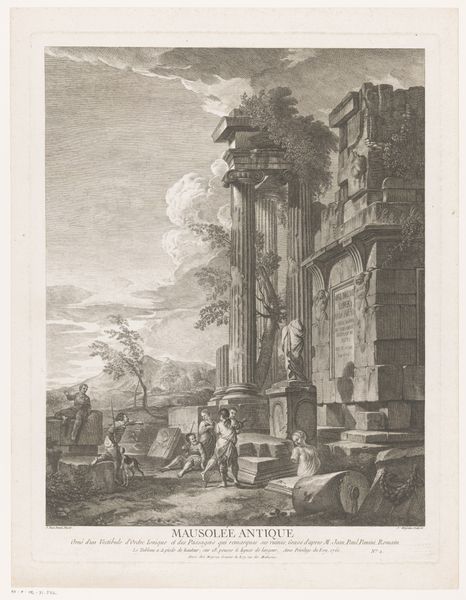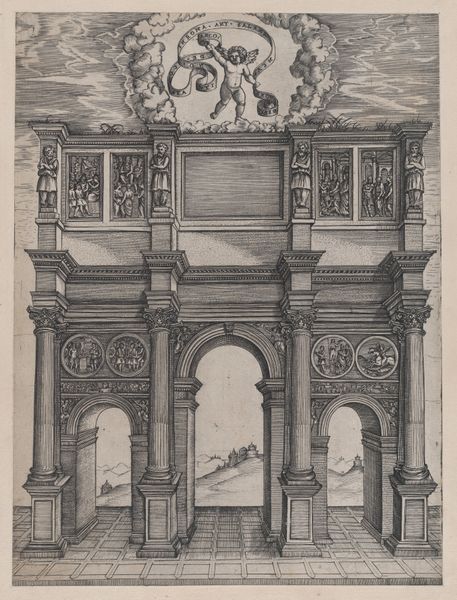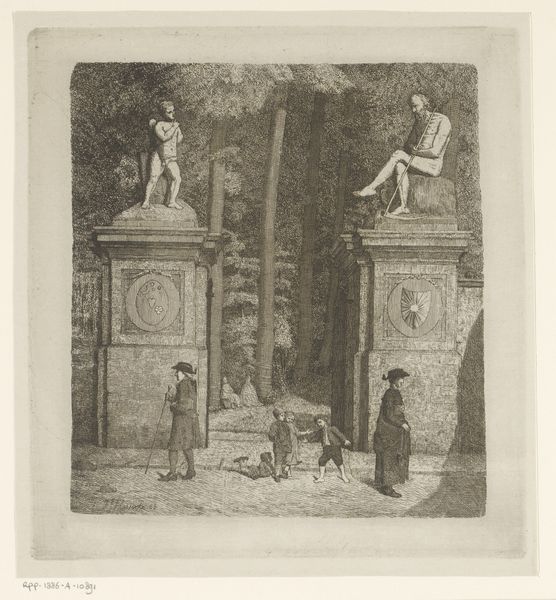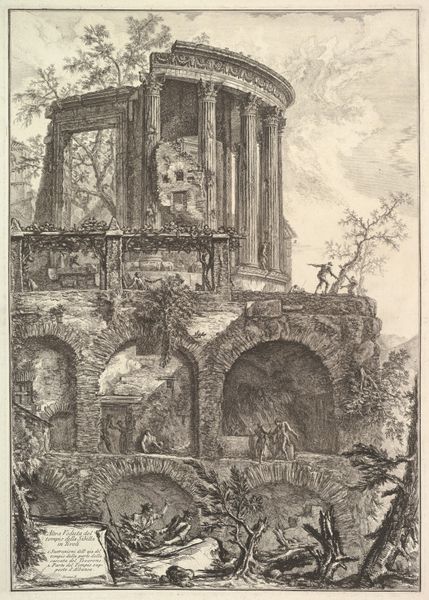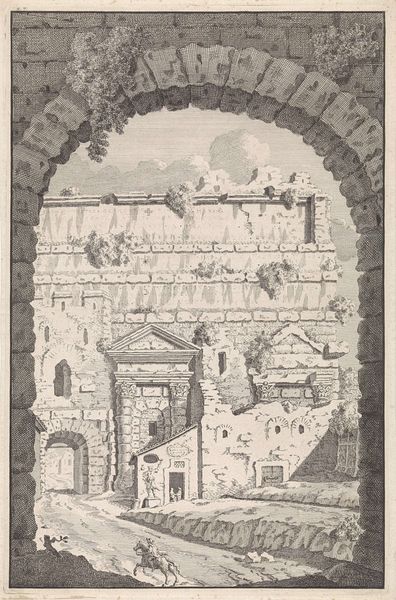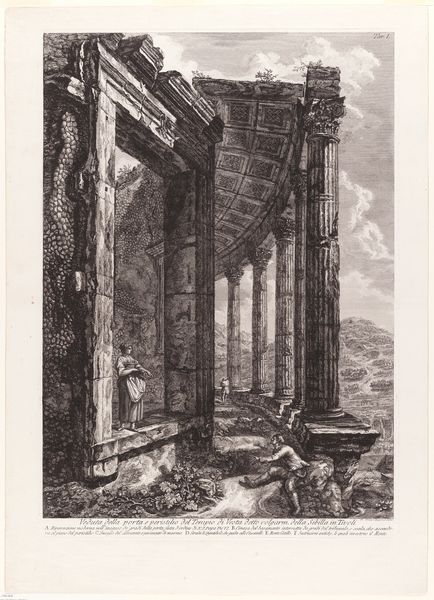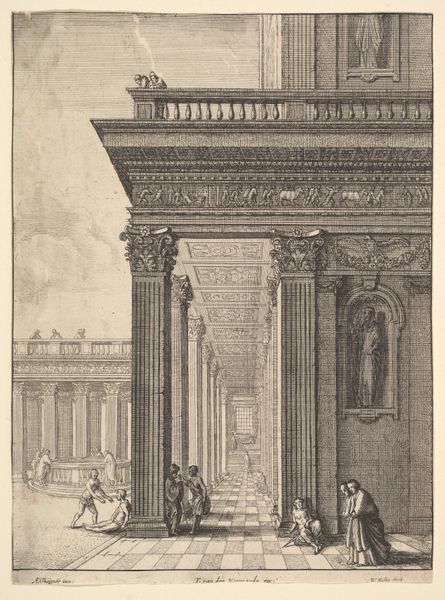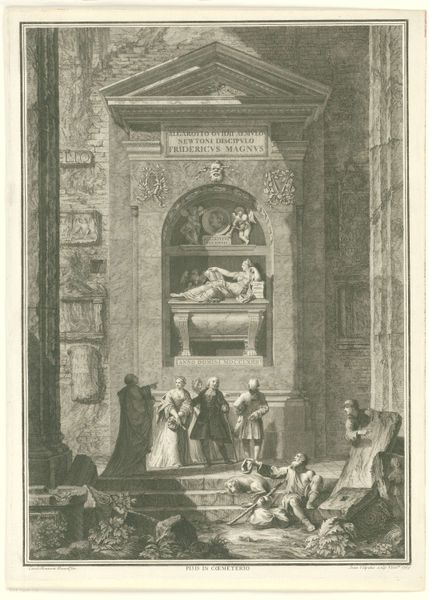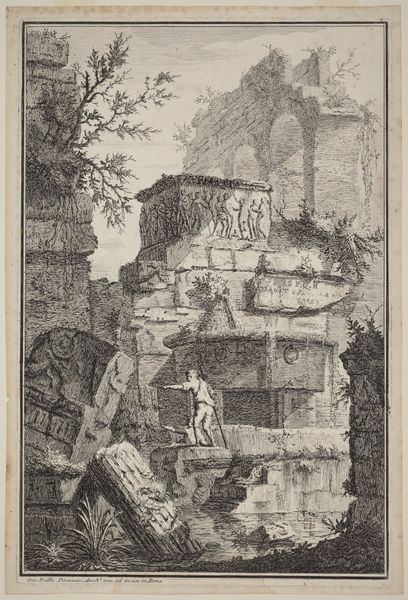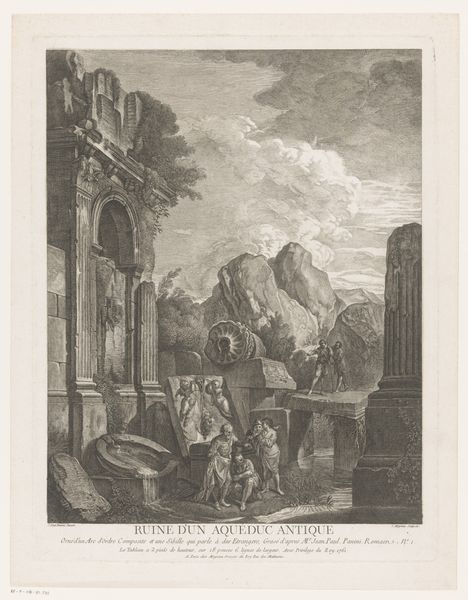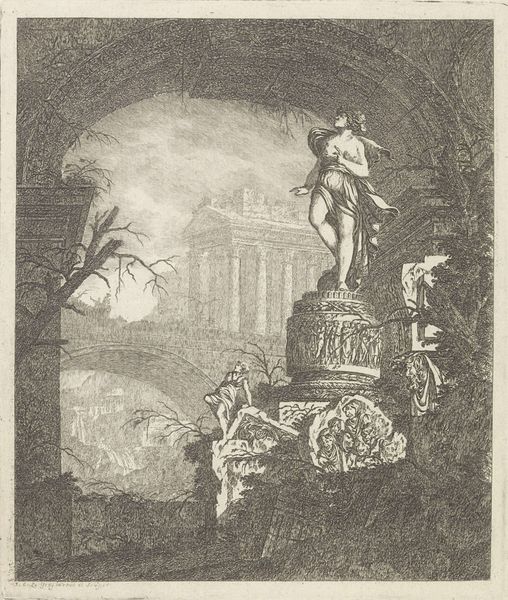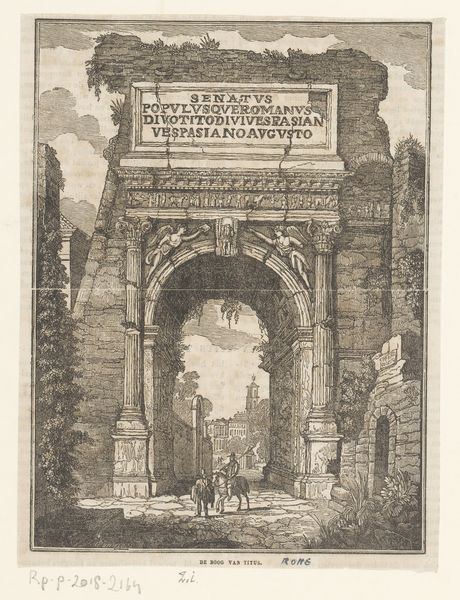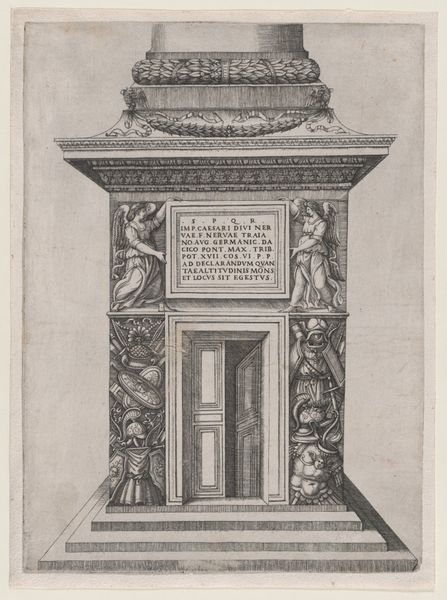
print, etching, architecture
#
neoclacissism
# print
#
etching
#
landscape
#
romanesque
#
column
#
architecture
Dimensions: height 456 mm, width 360 mm
Copyright: Rijks Museum: Open Domain
Luigi Rossini etched the Forum of Nerva in Rome, capturing the grandeur of Roman architecture. The columns and entablature, laden with classical motifs, speak volumes. These architectural elements, derived from ancient Greece, evolved into symbols of power and order. Consider the column; from the simple Doric to the ornate Corinthian, each style reflects a distinct cultural ambition. Seen here, it echoes across millennia, appearing in Renaissance palaces and Neoclassical monuments, each time reimagined to legitimize authority, mirroring the Roman emperors' aspirations for enduring legacy. This echoes the deep-seated human desire for permanence. The repetition of classical forms in art and architecture serves as a constant reminder of our connection to the past, fulfilling a psychological need to anchor ourselves in history. Ultimately, it demonstrates the cyclical nature of history, where symbols are reborn, adapted, and imbued with new relevance.
Comments
No comments
Be the first to comment and join the conversation on the ultimate creative platform.
